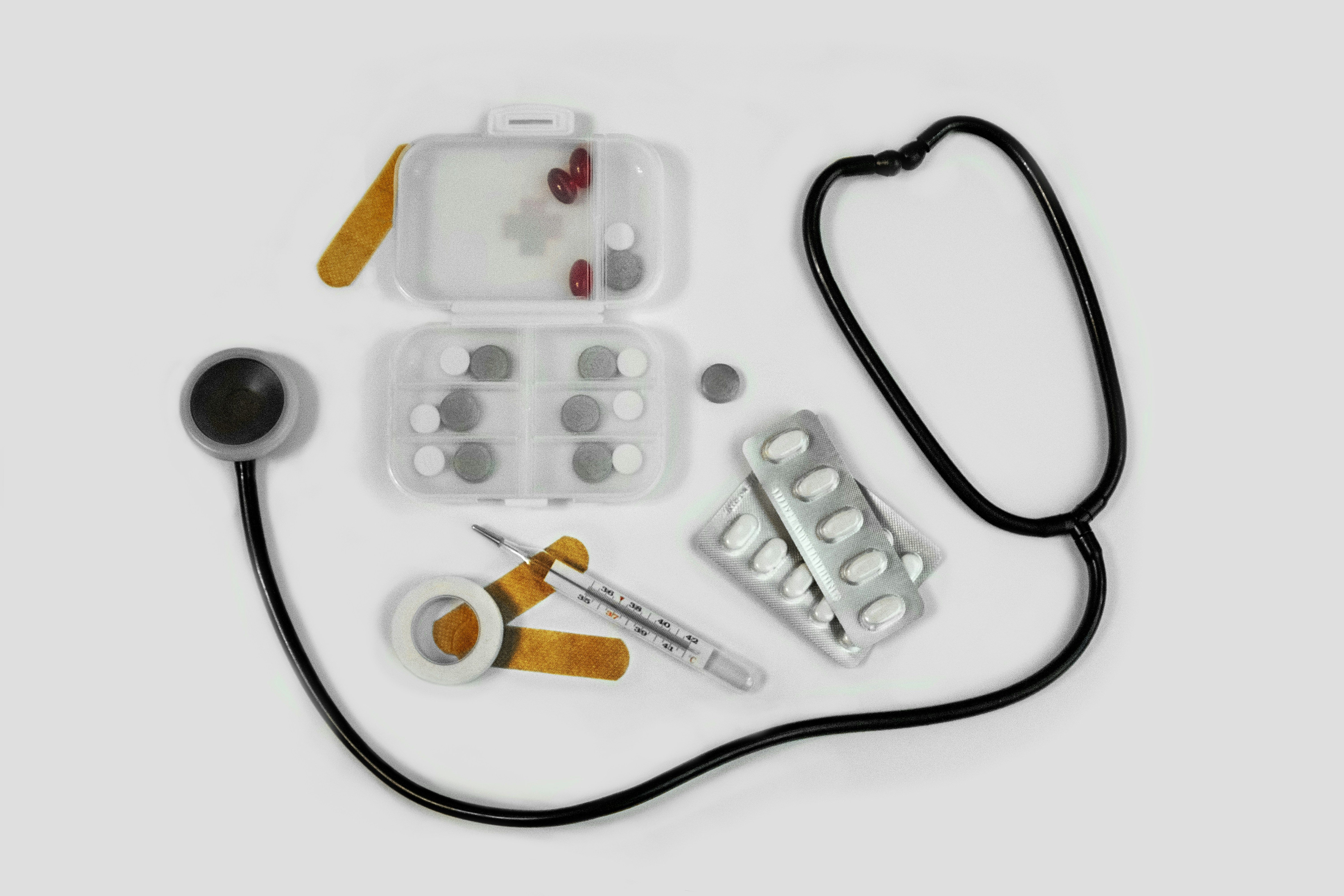That burning sensation when you pee, the constant urge to go—UTIs are a frustratingly common infection that can disrupt your day and quickly become more serious if left untreated. While they affect people of all ages, some experience them more frequently than others.
The good news? Recognizing the early symptoms and taking swift action can help you recover faster and prevent future infections. Here’s what you need to know.
What Is a UTI?
A urinary tract infection (UTI) is an infection that occurs when bacteria enter the urinary system, which includes the kidneys, bladder, ureters, and urethra. While the body is designed to keep bacteria out, sometimes harmful bacteria manage to invade, multiply, and cause an infection.
What Are the Symptoms of a UTI?
UTI symptoms can range from mildly inconvenient to outright painful, often worsening if the infection is not addressed. Be on the lookout for:¹
- Frequent urination: A persistent urge to urinate, even if only a small amount comes out each time, often disrupting daily activities and sleep.
- Burning pain: A sharp, stinging, or uncomfortable sensation during urination, which can worsen as the infection progresses.
- Cloudy or smelly urine: Urine that appears unusually cloudy, has a strong or foul odor, or looks thicker than normal due to the presence of bacteria and white blood cells.
- Pelvic discomfort: A dull, aching pain or pressure in the lower abdomen or pelvic area, which may feel similar to menstrual cramps or bladder fullness.
- Blood in urine: Urine that appears pink, red, or cola-colored, indicating the presence of blood, which can result from irritation and inflammation in the urinary tract.
- Fever or chills: A sign that the infection may have spread to the kidneys, often accompanied by lower back pain, nausea, vomiting, or general fatigue.
Potential Complications of a UTI
If left untreated, this infection can lead to more serious UTI complications, including:¹
- Kidney infection (Pyelonephritis): A severe UTI can spread to the kidneys, causing intense back pain, high fever, nausea, and vomiting. This condition requires immediate medical attention to prevent permanent kidney damage.
- Recurrent UTIs: Some individuals, especially women, experience frequent UTIs, which may indicate an underlying issue such as incomplete treatment, anatomical factors, or chronic bladder irritation.
- Sepsis: In rare cases, a severe UTI can enter the bloodstream, leading to sepsis—a life-threatening condition that causes systemic inflammation, organ failure, and shock.
- Pregnancy complications: UTIs during pregnancy can increase the risk of preterm labor, low birth weight, and kidney infections, making prompt treatment essential for both mother and baby.
- Urethral stricture (in men): Infections that persist or are left untreated in men can lead to urethral narrowing, causing difficulty urinating and increasing the risk of further infections.

What Causes a UTI?
The most common cause of UTIs is Escherichia coli (E. coli), a type of bacteria that naturally lives in the intestines but can cause infections when it enters the urinary tract. Once bacteria reach the urethra (the tube that carries urine out of the body), they can travel upward, leading to an infection in the bladder (cystitis) and, in more serious cases, the kidneys (pyelonephritis).
Bacteria can get into the urinary system in several ways:²
- Poor Hygiene: Wiping from back to front after using the bathroom can transfer bacteria from the anal area to the urethra.
- Sexual Activity: UTIs are more common in sexually active individuals because bacteria can be introduced during intercourse.
- Holding in Urine: Delaying urination gives bacteria more time to multiply in the bladder.
- Dehydration: Not drinking enough water reduces the body's ability to flush out bacteria naturally.
- Hormonal Changes: Pregnancy, menopause, and birth control can alter the urinary tract’s defenses, making infections more likely.
- Urinary Blockages: Kidney stones or an enlarged prostate can prevent proper urine flow, creating an environment where bacteria thrive.
- Weakened Immune System: Conditions like diabetes or medications that suppress the immune system can make it harder for the body to fight infections.
While anyone can develop a UTI, certain UTI risk factors make some individuals more susceptible. Women are more prone to UTIs due to their shorter urethra, which allows bacteria to reach the bladder more easily.
However, men, children, and older adults can also experience UTIs, particularly if they have UTI risk factors such as a suppressed immune system, urinary retention, or difficulty fully emptying their bladder.
How Are UTIs Treated?
Prompt treatment is essential for UTIs to prevent the infection from worsening or spreading to the kidneys. The good news is that UTIs are highly treatable with a combination of medication, hydration, and symptom management. Here’s what to expect when treating a UTI.
1. Antibiotics
The primary treatment for a UTI is a course of antibiotics prescribed by a healthcare provider. Since UTIs are caused by bacteria, antibiotics work by eliminating the infection, often providing relatively fast relief. However, it’s crucial to complete the full course of medication as prescribed, even if symptoms improve, to prevent recurrence and antibiotic resistance.
2. Hydration
Drinking plenty of water is important during recovery. Staying hydrated helps flush bacteria from the urinary tract, supporting the body’s natural defense system. Most healthcare providers recommend increasing fluid intake to help speed up the healing process.
3. Pain Relief and Symptom Management
While antibiotics treat the infection, they do not immediately relieve discomfort. Over-the-counter UTI medicine like pain relievers can help manage symptoms like burning during urination and pelvic discomfort. Some medications specifically target urinary pain, though they do not cure the infection itself.

How Can You Prevent UTIs?
Preventing UTIs starts with good hygiene, proper hydration, and small lifestyle adjustments. Measures include:¹,²
- Drinking plenty of water helps flush bacteria from the urinary tract, while urinating regularly and not holding in urine for long periods prevents bacteria from multiplying in the bladder.
- Practicing good bathroom habits, such as wiping from front to back and urinating after sex, can further reduce bacterial spread.
- Avoiding douches, scented soaps, and harsh feminine hygiene products helps maintain a healthy bacterial balance, as does wearing breathable cotton underwear to keep the area dry.
- Probiotics found in yogurt and supplements may also support a healthy urinary tract by promoting beneficial bacteria.
- Some birth control methods, like diaphragms and spermicides, can increase the risk of UTIs, so discussing alternatives with a healthcare provider may be beneficial.
While no UTI prevention method is foolproof, adopting these habits can significantly lower the risk of UTIs and help maintain a healthy urinary system.
Frequently Asked Questions
How do you get rid of a UTI fast?
The quickest way to treat a UTI is by taking antibiotics prescribed by a healthcare provider. Drinking plenty of water and avoiding bladder irritants can help ease symptoms while the medication works.
Can a UTI go away on its own?
Some mild UTIs may clear up without treatment, but there’s no guarantee. If left untreated, the infection can worsen and spread to the kidneys, so it’s best to seek medical care if symptoms persist.
What are the signs your UTI is getting worse?
Worsening symptoms include fever, chills, lower back or side pain, nausea, vomiting, or blood in the urine. These may indicate a kidney infection, which requires immediate medical attention.
What happens if you don’t get treatment for a UTI?
An untreated UTI can spread to the kidneys, leading to a more severe infection that may cause high fever, intense pain, and even long-term kidney damage. In rare cases, the infection can enter the bloodstream, becoming life-threatening if not treated promptly.
What's the best home remedy for a UTI?
While home remedies can help ease symptoms, they won’t cure a UTI. Drinking plenty of water, taking cranberry supplements, and avoiding bladder irritants like caffeine and alcohol may support recovery, but antibiotics are the most effective treatment.
Get UTI Treatment From the Comfort of Your Home
Dealing with a UTI can be uncomfortable, but getting the right treatment doesn’t have to be. With 24hrdoc, you can skip the hassle of doctor’s visits and connect with a healthcare provider online in minutes.
Get a fast, discreet online UTI treatment—all from the comfort of your home. No waiting rooms, no delays—just quick, reliable care when you need it. Start your treatment today and get back to feeling your best.
Sources:
- WebMD. Urinary Tract Infections (UTIs).
- Medical News Today. Urinary tract infection (UTI) symptoms, causes, and remedies.




